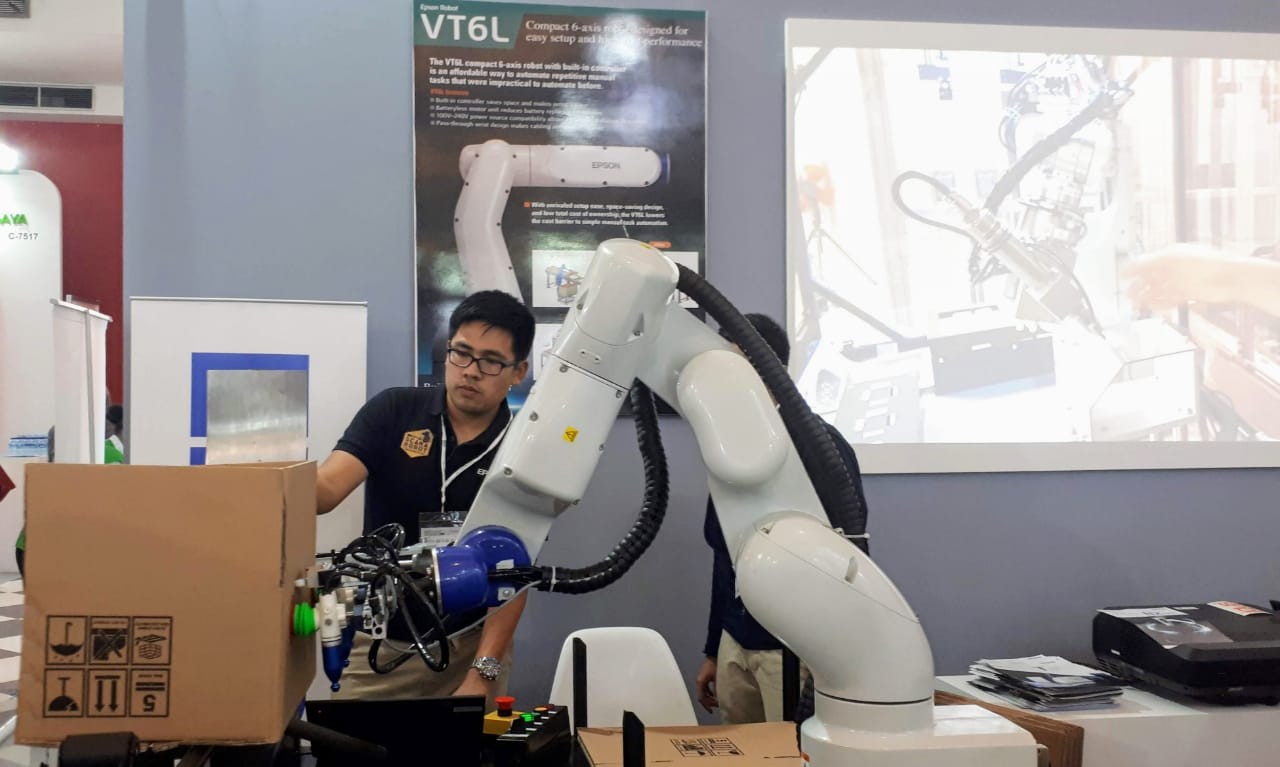
Optimism abounds among industry players on Industry 4.0
by Eisya A. EloksariTechnology associations and industry players in Indonesia are optimistic that job gains from the fourth industrial revolution (Industry 4.0) will outweigh job losses, despite growing concern that automation will replace millions of jobs in the country.
During a discussion on Digital Innovation in the Manufacturing Sector, as part of Manufacturing Indonesia exhibition in Jakarta on Dec. 5, Telkom Indonesia senior manager platform IoT (internet of things) I Ketut Agung Enriko said that technology such as IoT would be more efficient than humans in terms of improving productivity, risk avoidance and lowering production costs.
“Especially in manufacturing, low-level employment and repetitive work will ultimately disappear. We cannot deny this. However, new opportunities from startups will also emerge,” he said on Thursday.
Meanwhile, Mitsubishi Electric deputy general manager Ivan Chandra believes that by integrating technology into the manufacturing sector, industries can produce more and grow their businesses—resulting in more jobs.
He went on to say that Indonesia had already been in the Industry 3.0 stage where industries have adopted automation especially for tasks that are considered to be dangerous for humans.
“Moving toward 4.0, we do not want to just replace humans with robots. We need only to switch tasks that have high human safety risks, such as operating pressing machines, to robots,” Ivan said.
Management consultancy McKinsey & Company projects that by 2030, automation could displace 23 million jobs, but 27 million to 46 million new jobs could be created in the same period, 10 million of which would be new types of occupations.
The research suggests that occupations like legal support, machine operators and payroll officers will most likely fall victim to automation while jobs like CEOs, salespersons and artists will prevail.
Automation has been the talk of the town since President Joko “Jokowi” Widodo endorsed the Making Indonesia 4.0 road map in 2018 to support the competitiveness of local industries. The issue, however, has sparked concerns over skills gaps and the preparedness of Indonesian workers.
The Jakarta chairman of the Indonesian Information and Communication Technology (ICT) Business Association (Aptiknas) Franky Christian said at the same event that the common challenge in Asia-Pacific when countries are implementing Industry 4.0 is human resource skills.
The challenge is more prevalent in the manufacturing industry, he added, as he claimed that 80 to 90 percent of businesses experienced system failure because of the inability of employees to adapt.
“That is why Indonesia needs to engage in up-skilling and re-skilling programs for its citizens as Singapore has done the same for people whose jobs are to be replaced by automation,” Franky said.
Rudi Rusdiah, Big Data and AI Indonesia (Abdi) chairman, told the forum that the solution lay in good governance to ensure workers could work alongside technological advancement, instead of against it.
Government regulation, he said, should protect the citizen from data piracy and job losses but should not hamper new technologies’ utilization. He believed that complementary and collaborative technologies such as artificial intelligence’s (AI) ability to self-diagnose manufacturing machines could enhance human productivity.
Rudi went on to say that even when jobs are lost to automation, workers need to be trained, especially in soft skills and creativity as he said that humans could hardly compete with AI’s hard skills.
"People are always scared to lose their jobs at every stage of industrial revolutions, but mass unemployment did not happen. I believe Industry 4.0 will be the same," he said, adding that employment and gross domestic products have always been on the rise.
He suggested Indonesia focus on AI and big data adoption instead of robotics since the country has a lot of labor that needs to be absorbed.
However, he noted the high cost of AI adaptation, such as the need for high-performance computing, as well as the lack of readiness of domestic experts in big data implementation including the shortage of data scientists in the nation.